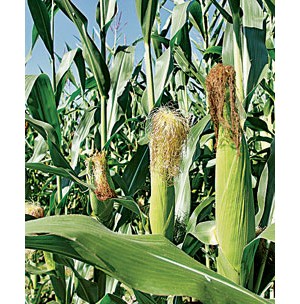Advertisement
Grab your lab coat. Let's get started
Welcome!
Welcome!
Create an account below to get 6 C&EN articles per month, receive newsletters and more - all free.
It seems this is your first time logging in online. Please enter the following information to continue.
As an ACS member you automatically get access to this site. All we need is few more details to create your reading experience.
Not you? Sign in with a different account.
Not you? Sign in with a different account.
ERROR 1
ERROR 1
ERROR 2
ERROR 2
ERROR 2
ERROR 2
ERROR 2
Password and Confirm password must match.
If you have an ACS member number, please enter it here so we can link this account to your membership. (optional)
ERROR 2
ACS values your privacy. By submitting your information, you are gaining access to C&EN and subscribing to our weekly newsletter. We use the information you provide to make your reading experience better, and we will never sell your data to third party members.
Environment
USDA Approves Ethanol Corn
Agriculture: Genetically modified crop will boost biofuel production, but critics raise red flags
by Britt E. Erickson
February 21, 2011
| A version of this story appeared in
Volume 89, Issue 8

The U.S. Department of Agriculture has cleared the way for farming corn that is genetically modified to produce α-amylase, an enzyme that rapidly breaks down starch into sugar. The decision—denounced by environmental groups—marks the first U.S. approval of a crop designed for ethanol production.
Syngenta will sell corn seed with the amylase trait under the name Enogen. The company has shown that the trait can boost ethanol production efficiency at a 50 million-gal-per-year facility by about 10%, providing “producers with a proven means to generate more gallons of ethanol from their existing facilities,” says Davor Pisk, Syngenta’s chief operating officer.
Syngenta first asked USDA for approval of the seed in 2005. On the basis of environmental and plant pest risk assessments conducted since then, USDA’s Animal & Plant Health Inspection Service has concluded that this line of corn “should no longer be subject to regulation,” says Michael C. Gregoire, deputy administrator for APHIS’s biotechnology regulatory services.
Grain millers and food manufacturers, however, worry that the amylase trait will escape from Enogen crops and comingle with corn intended for human consumption. The groups say it will affect the quality and shelf life of processed foods containing corn, such as breakfast cereals, snack foods, and battered products.
Syngenta acknowledges that amylase can affect food processes, but claims that the enzyme is activated only under certain conditions of temperature, moisture, and acidity, which now affect only one product: table grits.
Syngenta plans to work with only a few ethanol plants and corn growers this year, but is preparing for large-scale commercial planting of Enogen corn in 2012. The company says it will manage production of the biotech corn by “using a contracted, closed production system.”
But environmental and consumer groups argue that Syngenta’s plan for a closed-loop system does not go far enough. “There is no way to protect food corn crops from contamination by ethanol corn,” stresses Margaret Mellon, food and environment program director at the Union of Concerned Scientists. “Even with the most stringent precautions, the wind will blow and standards will slip.”




Join the conversation
Contact the reporter
Submit a Letter to the Editor for publication
Engage with us on Twitter